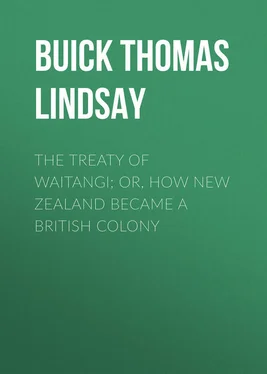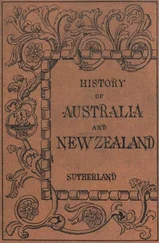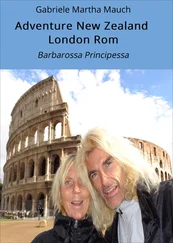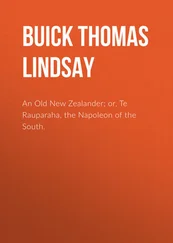Thomas Buick - The Treaty of Waitangi; or, how New Zealand became a British Colony
Здесь есть возможность читать онлайн «Thomas Buick - The Treaty of Waitangi; or, how New Zealand became a British Colony» — ознакомительный отрывок электронной книги совершенно бесплатно, а после прочтения отрывка купить полную версию. В некоторых случаях можно слушать аудио, скачать через торрент в формате fb2 и присутствует краткое содержание. Жанр: foreign_antique, foreign_prose, на английском языке. Описание произведения, (предисловие) а так же отзывы посетителей доступны на портале библиотеки ЛибКат.
- Название:The Treaty of Waitangi; or, how New Zealand became a British Colony
- Автор:
- Жанр:
- Год:неизвестен
- ISBN:нет данных
- Рейтинг книги:5 / 5. Голосов: 1
-
Избранное:Добавить в избранное
- Отзывы:
-
Ваша оценка:
- 100
- 1
- 2
- 3
- 4
- 5
The Treaty of Waitangi; or, how New Zealand became a British Colony: краткое содержание, описание и аннотация
Предлагаем к чтению аннотацию, описание, краткое содержание или предисловие (зависит от того, что написал сам автор книги «The Treaty of Waitangi; or, how New Zealand became a British Colony»). Если вы не нашли необходимую информацию о книге — напишите в комментариях, мы постараемся отыскать её.
The Treaty of Waitangi; or, how New Zealand became a British Colony — читать онлайн ознакомительный отрывок
Ниже представлен текст книги, разбитый по страницам. Система сохранения места последней прочитанной страницы, позволяет с удобством читать онлайн бесплатно книгу «The Treaty of Waitangi; or, how New Zealand became a British Colony», без необходимости каждый раз заново искать на чём Вы остановились. Поставьте закладку, и сможете в любой момент перейти на страницу, на которой закончили чтение.
Интервал:
Закладка:
The Law of Nations has well defined the principle that before a country becomes entitled to claim sovereignty in any part of the globe "by right of discovery" it is not sufficient that the mariners of that country should sail forth and discover new lands; but there must be some effective act immediately following, such as systematic occupation, in order to bind other peoples to respect the discovering nation's claim.
During the latter part of the century which had elapsed between the time of Cook's proclamation to the world and the day when the Melbourne Cabinet decided that Britain must assume in earnest her responsibilities in the South Pacific there had not only been no systematic occupation of New Zealand by Britain, but rather a systematic renunciation of the nation's intention in that direction. The Duke of Wellington had petulantly declared that England had colonies enough, and Minister after Minister who had presided over the Colonial Office had in deeds, if not in words, endorsed this policy of anti-Imperialism. There were at this time none amongst the British statesmen blessed with that broader grasp, that wider vision of an Empire "extending over every sea, swaying many diverse races, and combining many diverse forms of religion," which afterwards animated the colonial policy of Lord John Russell. 1 1 On one occasion when Lord John Russell was asked by a French Diplomat how much of Australia Britain claimed, he promptly replied, "The whole of it."
The courage and capacity which that planter of Imperial outposts declared were necessary to build such an Empire – to effect such a wholesome blending of peoples – were wanting, and there was even an imminent danger that in this negatory attitude towards colonising other Powers would come to regard Britain not as an equal, nor with the fear that an equal can inspire, but as a timorous weakling, a nation destitute of enterprise, the product of a waning courage and of a pusillanimous hand.
Thus it came about that when in 1839 the Ministry of Lord Melbourne found themselves coerced by circumstances into recognising the need for systematic colonisation, they discovered themselves destitute of what most people believed they possessed – a title to sovereignty in New Zealand "by right of discovery."
The spirit of the British nation had not, however, been as idle as the British statesman, and inherent enterprise, combined with an inherent love of adventure, had sown and matured the seed which continuous Ministries had persistently declined to nourish. The elements which had contributed to the irregular settlement of New Zealand were faithfully recorded in Lord Palmerston's letter to Captain Hobson, and a more unpropitious beginning for any colony could scarcely be imagined. The number of British subjects who, up to 1839, had resorted to New Zealand for the purposes of legitimate and respectable trade were comparatively few, but it is estimated that even earlier than this there were over five hundred escaped convicts living along the sea coast in and around the Bay of Islands, the point at which settlement had, up to that time, chiefly congregated. Of those directly and indirectly concerned in the whaling industry there must have been a considerable number, for it is officially recorded that in the year 1836 no less than one hundred and fifty-one vessels had visited the Bay of Islands alone, and the proportion was even larger in the first half of the succeeding year.
The combination of whaler and convict was not one calculated to strengthen the morality of the community, and so large a leaven of the lawless class, together with the insatiable desire of the natives to procure muskets, had the effect of creating a state of society which, in the words of the Foreign Secretary, "indispensably required the check of some contending authority." In the absence of any such authority the more respectable settlers at the Bay of Islands had organised themselves into a self-constituted Association, into whose hands was committed the administration of a rude justice, which recognised a liberal application of tar and feathers as meet punishment for some of the offences against society. A steadying influence had also been supplied by the appointment at intervals since 1814 of gentlemen empowered to act as Justices of the Peace, their authority being derived from a Commission issued by the Governor of New South Wales, and, if illegal, was on more than one occasion acted upon with salutary effect. 2 2 As indicating the state into which society had fallen it may be mentioned that one Master of a trading vessel who had no muskets to sell, gave a chief a packet of corrosive sublimate wherewith to destroy his enemies. To correct this condition of affairs a proclamation was published in the New South Wales Government Gazette in 1814 appointing the Rev. Mr. Kendall and the chiefs, Ruatara, Hongi and Korokoro, Magistrates at the Bay of Islands, for the purpose of suppressing outrages. This authority was subsequently revoked as being illegal.
Although it has been a popular sport on the part of many writers to throw darts of sarcasm at the labours of the Missionaries, they, too, must be accounted a tremendous influence for good, not so much, perhaps, in checking the licentiousness of the Europeans, as in preventing the natives from becoming contaminated by it. Destructive internecine wars had been waging "with fiendish determination" for many years under the conquering leadership of Hongi, Te Wherowhero, Te Waharoa and Te Rauparaha, by which whole districts had been depopulated, and tribe after tribe practically annihilated. Still the Maori people were a numerous, virile and warlike race, capable of deeds of blackest barbarism, or equally adaptable to the softening influences of Christianity and civilisation.
So far as the darker side of their history is concerned, we have it on the irreproachable authority of the Rev. Samuel Marsden that the tragedies in which the natives made war upon the Europeans were in almost every instance merely acts of retaliation for earlier outrages. 3 3 "The Rev. Mr. Kendall has received a commission to act as a Magistrate, but it does not appear that he possesses the means of rendering effective assistance to the natives against the oppressions of the crews of European vessels, and of controlling in any degree the intercourse that subsists between them." – Commissioner Bigge to Earl Bathurst, 1823.
The killing of Marian du Fresne and the massacre on board the Boyd were unquestionably so; and the dread of the natives which for several years after these events almost suspended the sea trade with New Zealand was the natural fruit of that cruelty which trusting Maori seamen had suffered at the hands of unscrupulous captains, who had either inveigled them or forced them on board their whalers. Dark as the history of New Zealand was during these Alsatian days, there is no chapter quite so dark, or which redounds less to the credit of the white race, than the story of the sea-going natives who were taken away from these sunny shores, 4 4 This practice was prohibited by the Governor of New South Wales by Proclamation, on November 9, 1814.
and abandoned in foreign countries, or driven at the end of the lash to tasks far beyond their physical strength, resulting in the premature death of many, while the poison of undying hatred entered into the souls of the survivors.
The position on shore was scarcely less disgraceful, for the natives resident in the seaward pas were cruelly ill-treated by the crews of the European vessels who visited them; and it is stated in the records of the Church Missionary Society that within the first two or three years of the arrival of the Missionaries not less than one thousand Maoris had been murdered by Europeans, the natives unhappily not infrequently visiting upon the innocent who came within their reach revenge for crimes perpetrated by the guilty who had evaded their vengeance.
Читать дальшеИнтервал:
Закладка:
Похожие книги на «The Treaty of Waitangi; or, how New Zealand became a British Colony»
Представляем Вашему вниманию похожие книги на «The Treaty of Waitangi; or, how New Zealand became a British Colony» списком для выбора. Мы отобрали схожую по названию и смыслу литературу в надежде предоставить читателям больше вариантов отыскать новые, интересные, ещё непрочитанные произведения.
Обсуждение, отзывы о книге «The Treaty of Waitangi; or, how New Zealand became a British Colony» и просто собственные мнения читателей. Оставьте ваши комментарии, напишите, что Вы думаете о произведении, его смысле или главных героях. Укажите что конкретно понравилось, а что нет, и почему Вы так считаете.












